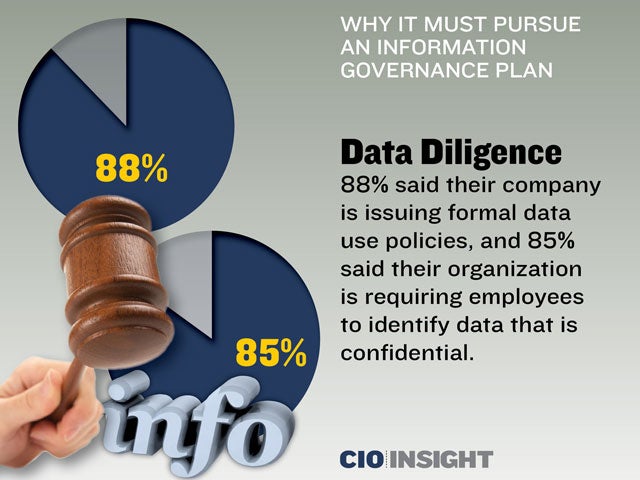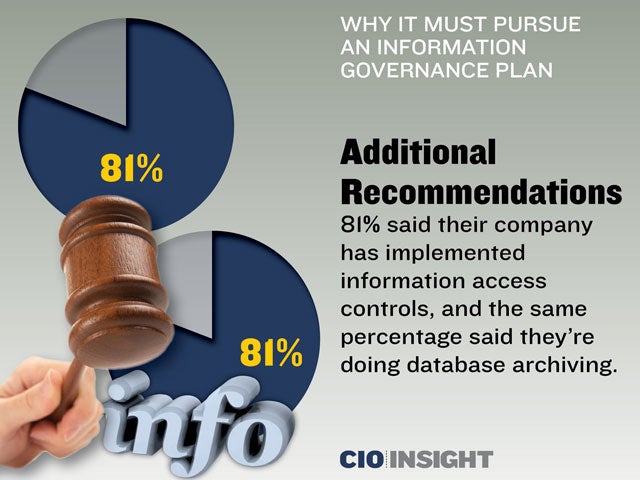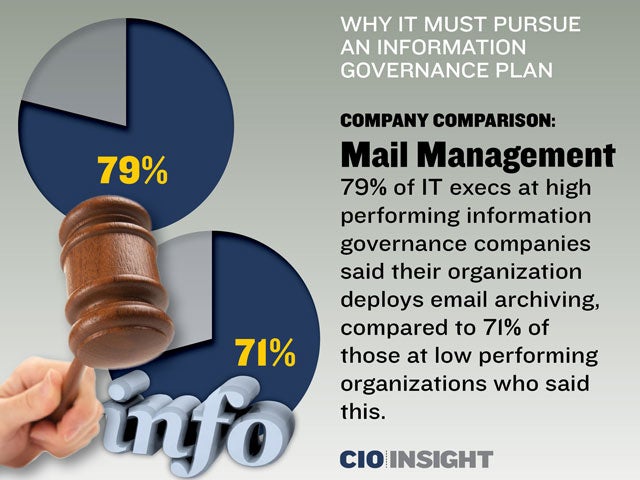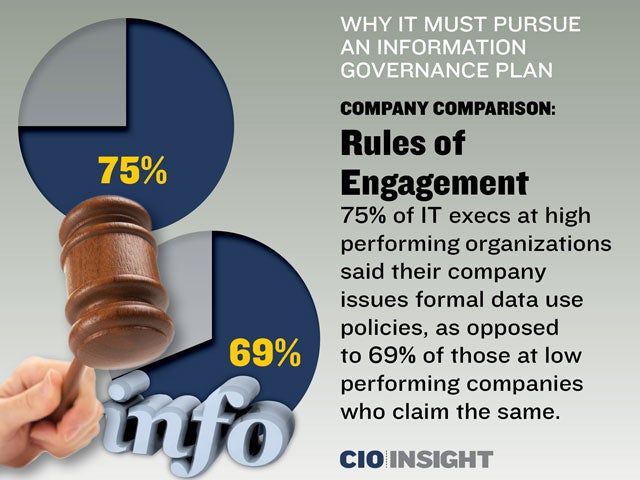
Why IT Must Pursue an Information Governance Plan
 Why IT Must Pursue an Information Governance Plan
Why IT Must Pursue an Information Governance Plan
Data becomes more difficult to manage every year, so implementing an effective information governance program helps IT better handle this growing problem.
 In the Works
In the Works
94% of IT execs said their organization has a formal information governance program or plan to have one.
 Data Diligence
Data Diligence
88% said their company is issuing formal data use policies, and 85% said their organization is requiring employees to identify data that is confidential.
 School’s in Session
School’s in Session
84% said their organization is training employees on storage and archiving.
 Under Review
Under Review
76% said their company assesses file types to prevent non-critical buildup, and 73% evaluate the financial value of information.
 Secured Asset
Secured Asset
82% said their organization deploys data loss prevention tools for structured data.
 Additional Recommendations
Additional Recommendations
81% said their company has implemented information access controls, and the same percentage said they’re doing database archiving.
 Company Comparison: Mail Management
Company Comparison: Mail Management
79% of IT execs at high performing information governance companies said their organization deploys email archiving, compared to 71% of those at low performing organizations who said this.
 Company Comparison: Rules of Engagement
Company Comparison: Rules of Engagement
75% of IT execs at high performing organizations said their company issues formal data use policies, as opposed to 69% of those at low performing companies who claim the same.
 Company Comparison: Collective Effort
Company Comparison: Collective Effort
77% of IT execs at high performing companies said their organization conducts file archiving, compared to 67% of those at low performing companies who said they’re doing this.